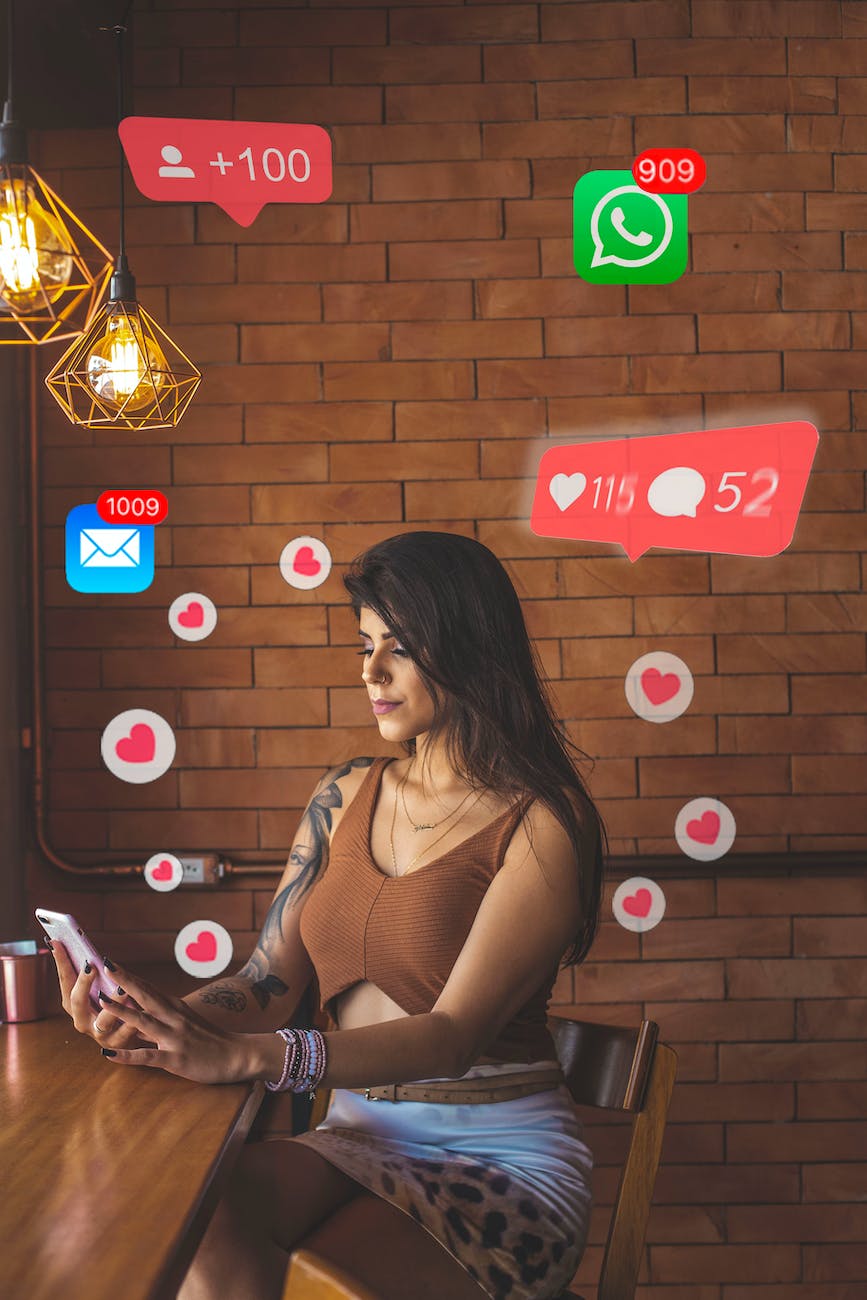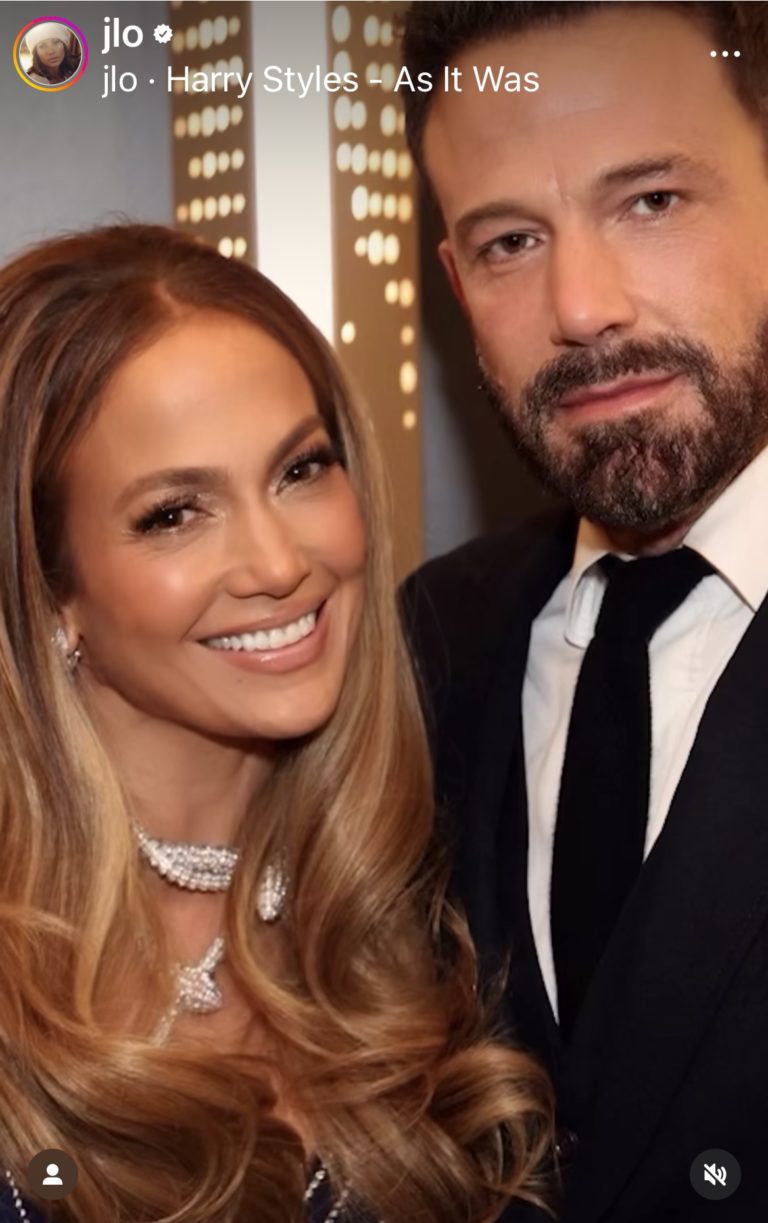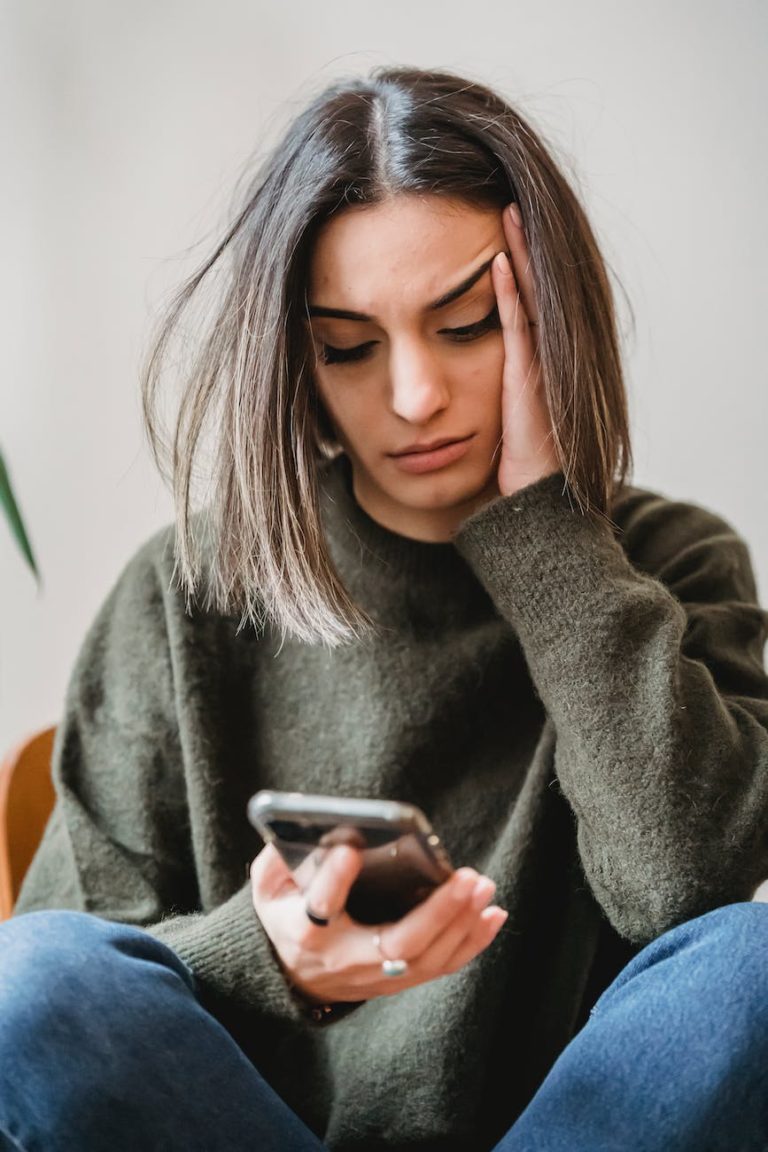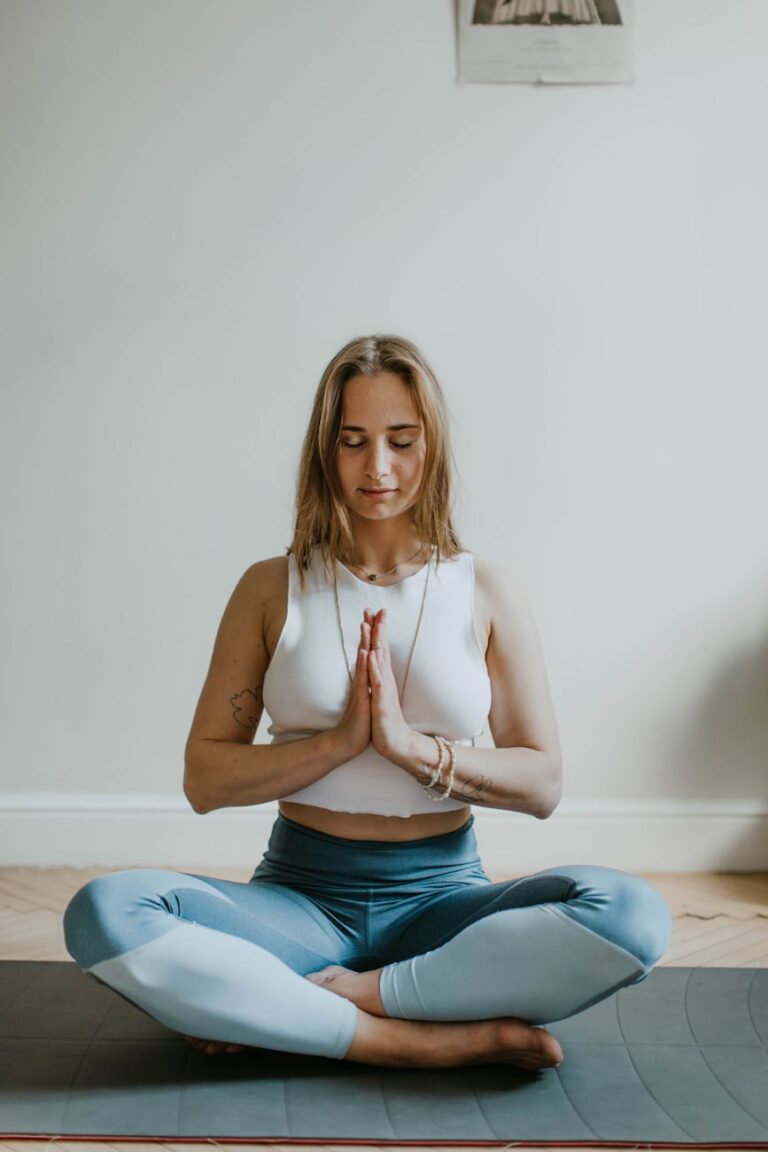How Social Media Lowers Self-Esteem – Especially If It’s an Obsession
How Social Media Lowers Self-Esteem > Social media has become an integral part of many Generation Z women’s lives, and it is having a pronounced effect on how they view themselves. Studies show that social media can have a significantly negative impact on self-esteem, leading to feelings of insecurity and inadequacy. In fact, some young women are even opting for plastic surgery in their twenties as a result of the damaging effects of social media use.
Self-esteem is defined as how we value ourselves, how we think and feel about our own worth. Social media has created an environment where people compare themselves to others based on how they look or how successful they seem to be. This comparison leads to people feeling inadequate and insecure in relation to their peers, which can ultimately lead to a decrease in self-esteem.
Studies have shown that the more time spent on social media, the more likely it is for an individual to experience decreased levels of self-esteem. This decrease has been linked to feelings of depression, anxiety and low self-confidence, all of which can lead to disordered eating or plastic surgery in extreme cases.
The impact of social media on how women view themselves cannot be overstated. It’s important to remember that beauty standards vary greatly across cultures and generations, and while people may feel pressured to conform to what they see online, this should not be accepted as normal behavior. If you’re feeling insecure or depressed due to how you measure up against other people on social media, it’s important to take a step back and remember that how you look is not an indication of how successful or “successful-looking” you are. Take time away from social media, engage in activities that make you feel good about yourself and surround yourself with positive people who can provide the support you need.
Social media has become an integral part of many Generation Z women’s lives, but it doesn’t have to be detrimental to their self-esteem. By being aware of how social media affects how they view themselves, women can take proactive steps to protect their mental health and wellbeing. Taking a break from social media or developing healthy coping strategies for dealing with insecurity are all small changes that can help young women achieve true self-love and appreciation.
Overall, it’s important to recognize how social media can have a negative impact on how we view ourselves. Taking time away from social media and focusing on activities that make us feel good about ourselves is the key to achieving true confidence and positive self-esteem. It’s also essential to remember that beauty standards vary across cultures and generations, so comparing yourself to others based on how they look should be discouraged. With this in mind, young women can take proactive steps towards protecting their mental health and developing positive body image habits.
In conclusion, social media has become an integral part of many Generation Z women’s lives, but how we use it is up to us. Although social media can have a negative impact on how we view ourselves, it’s important to take proactive steps towards developing healthy self-esteem and positive body image habits. By focusing on activities that make us feel good about ourselves, we can achieve true confidence and appreciation for who we are.
How Social Media Lowers Self-Esteem: A Story On How Social Media Makes Me Insecure
The story of how social media has caused me to become insecure starts with how I compare myself to the images and posts I see. It’s easy for those perfect pictures on Instagram, TikTok, and Twitter to make me feel like I’m lacking in comparison. This pressure to be perfect can lead us down a path of self-doubt and insecurity.
These days more and more girls are turning to plastic surgery as a way of trying to attain that “perfect” image they’re seeing online. But does it really help their self-esteem in the long run? Girls are getting lip fillers, nose jobs, breast implants – all because of the pressure they feel due to how they look when compared with what they’re seeing in social media.
The truth is, plastic surgery is a band aid that covers up our insecurities and doesn’t address the underlying problem. We can never truly be happy and secure if we’re constantly comparing ourselves to how others look online, no matter how many surgeries we have. The key is to focus on self-love and acceptance of who you are – not how perfect someone else looks online. Only then can we start to feel more secure about ourselves and become content with how we look, without needing social media validation or plastic surgery.
In conclusion, social media can have a powerful effect on how we view ourselves and our self-esteem. It’s important to remember that no amount of surgery or ‘likes’ on social media can replace how secure and content we feel in our own skin. Only by embracing how unique and perfect each one of us truly is, can we start to break free from the low self-esteem caused by social media.
How Social Media Lowers Self-Esteem
Social media has become an integral part of many people’s lives, especially for young generations. It is not surprising that how people perceive themselves is heavily influenced by how they are represented online, and this can have a detrimental impact on their self-esteem.
As most people want to be accepted and liked, social media can create a false perception of how others view them. People tend to post only the best parts of their lives, creating an image of perfection that often isn’t real or attainable. This can make those who don’t have the opportunity to portray themselves in such a way feel inferior and lacking in comparison to their peers. Furthermore, the abundance of images and posts depicting ‘perfect’ lifestyles can increase feelings of insecurity as people strive to compete and conform to what society deems acceptable.
The impact of social media on how we view ourselves is not limited to how it influences our own self-image. It can also lead to a preoccupation with how others perceive us, and how many likes or comments we receive on each post. This creates an unhealthy attachment as people become dependent on external validation as a measure of their worth, leading them down a path of comparison and insecurity.
It is important that young generations are aware of how social media can negatively affect their self-esteem and break away from the habit of constantly seeking approval online. This will allow them to focus more on developing positive relationships with themselves and those around them in real life, instead of being dragged down by how others think of them.
As social media continues to evolve, it is essential that people are empowered to take control of how they interact with it and how their self-esteem is affected. There are many resources available to help create a healthier relationship with social media, so those struggling do not need to suffer in silence. These strategies can allow individuals the freedom to express themselves authentically without fear of judgement or comparison.
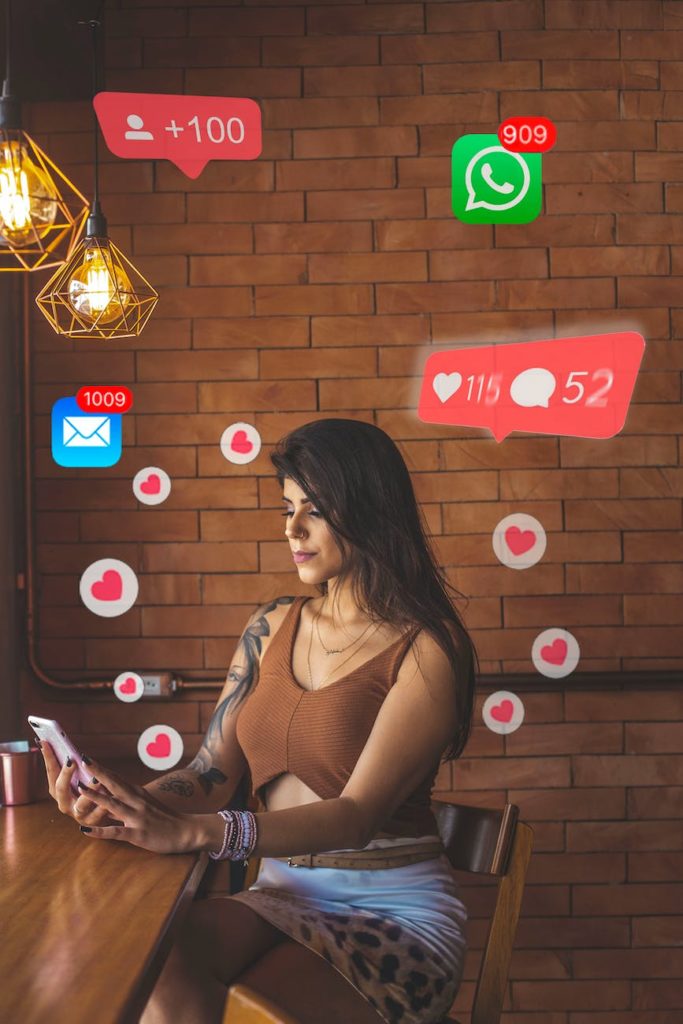
How Social Media Lowers Self-Esteem: Social Media Pressure To Be Perfect
As technology advances, social media has become a powerful platform, influencing how we think about ourselves and how others perceive us. On the surface, it appears to be beneficial – helping people connect with friends and stay up-to-date on current events. However, beneath this surface there is an alarming truth: Social media can have a devastating impact on how we view ourselves and how we feel about our lives.
One of the most significant effects of social media is that it encourages people to constantly compare themselves to those around them. We often create unrealistic expectations for how life should be and attempt to reach these impossible standards. This leads to lower self-esteem as users try in vain to “keep up” or outdo their peers. It also causes people to prioritize how they appear on social media over how they actually feel, leading to feelings of emptiness and inadequacy.
What’s worse is that this pressure isn’t limited just to adults. By exposing young children and teens to these unrealistic standards, we are teaching them how to value themselves based on how they appear online instead of how they feel in the real world. This could potentially lead to a generation of tomorrow’s leaders who are unable to cope with failure or take responsibility for their own actions due to an inability prioritize true emotional fulfillment over external validation.
It is therefore vital that we address the issue of social media-induced perfectionism and its effects on self-esteem while there is still time. It’s important to teach children how to be content with their own accomplishments and how to find happiness without needing the approval of others. We must take measures to ensure that social media is not sending the wrong message or developing the wrong value system for tomorrow’s leaders, but rather encouraging them to use this platform responsibly and constructively.
Everyone deserves to feel good about themselves and have a positive self-image – regardless of how they look online or how popular they are on social media. It’s essential to remember that our worth does not come from how many likes we get on Instagram or how many followers we have on TikTok, but from within ourselves and how confident we are in our unique skills and abilities.
By understanding how social media pressures people to be perfect, we can begin to create a healthier and more positive online environment. By doing this, we will be setting the stage for tomorrow’s leaders to become confident individuals who are secure in their own skin and are unafraid of failure or rejection – traits that all successful leaders should possess.
How Social Media Lowers Self-Esteem: Social Media Insecurity in Relationships
Social media has become an integral part of how Generation Z interacts with their peers, and the idea of ‘online dating’ is no longer something that is taboo. It can be a convenient way to meet people without having to leave your house or even have face-to-face conversations. However, this has also created a perfect opportunity for narcissistic men to target women with low self-esteem.
Unfortunately, social media lowers self esteem in many ways; from seeing how attractive other girls look on Instagram or how funny they are on TikTok, it can be easy to compare yourself and feel like you’re not good enough – even if these comparisons aren’t based in reality. This feeling along with being surrounded by technology all day can create a sense of insecurity in relationships, especially when it comes to how your partner may be interacting with other people online.
For some, this insecurity can manifest as jealously, distrust and even feelings of betrayal. This could lead to a break down in the relationship where both parties are unhappy and the person feeling insecure may become resentful towards their partner or push them away altogether. In addition, social media can be used to bully people, which has an incredibly damaging effect on how someone views themselves and how they interact with other people. All of these emotions can make it difficult to maintain a healthy relationship and have a profound impact on mental health.
In order to combat social media insecurity in relationships, it is important to stay mindful of how you view yourself, how technology affects your interactions with others, and how you communicate with your partner. Be sure to talk openly about how you feel if something is bothering you and how your partner can help make you feel more secure. It’s also important to remember that the lives people portray on social media aren’t always an accurate representation of how they actually live, so try not to compare yourself too harshly. Above all else, focus on self-love and how to build relationships in a healthy way.
With this in mind, it is clear that social media insecurity can have a damaging effect on relationships, but by being aware of how technology affects your mental health and how to communicate with your partner effectively, it’s possible to maintain strong bonds in spite of the potential challenges posed by online platforms.
The good news is, there are ways to combat this feeling of social media insecurity. One way is to set boundaries for how and how much you use social media, such as limiting how many hours you spend on the platforms and unfollowing anyone who makes you feel bad about yourself. Additionally, talking openly and honestly with your partner about how their behaviour on social media makes you feel can also help alleviate any feelings of anxiety or mistrust that may arise from overuse of these sites. Finally, focusing on self-care activities that make you feel more positive about yourself can help to boost your confidence and reduce vulnerability to those predatory people who are targeting women on social media.
By taking these small steps, we have the power to protect ourselves and our relationships from the damaging effects of social media insecurity. We can take control of how much time we spend online, how we interact with others, and how we perceive ourselves – so that no matter how often or little someone checks their phone, they can still live a life full of joy and satisfaction.
Positive and Negative Effects of Social Media On Self-Esteem
The influence of social media on how we perceive ourselves and how others perceive us has been a topic of growing interest in recent years. Social media platforms such as Instagram, Snapchat, and TikTok have become increasingly popular, with millions of users around the world engaging with them daily. This ubiquity can make it difficult to avoid comparing our own lives to those seen on these platforms, leading to a number of possible effects on self-esteem.
Here are some positive and negative effects that social media may have on self-esteem:
Positive Effects:
• Improves connection and communication – by communicating regularly with friends and family over social media you can stay up-to-date with their lives, strengthening relationships from afar.
• Increased visibility – by creating a profile and posting content, users can get their ideas or artwork seen by large audiences which can improve self-confidence.
• Self-expression – social media allows users to express how they feel in creative ways, giving them an outlet for how they want to be perceived.
• Encourages positive reinforcement – likes and comments from peers offer motivation and support which can help boost self-esteem.
Negative Effects:
• Unhealthy comparisons – comparing oneself to others on social media will often lead to feeling inadequate or inferior, creating negative emotions that have a damaging effect on self-esteem.
• Cyberbullying – unfortunately cyberbullying is still a major issue, with many victims feeling threatened, embarrassed, or isolated after a negative online experience.
• Unrealistic standards – looking at how people present themselves on social media can be deceiving and lead to unrealistic expectations of how you should look or how your life should be.
• Social isolation – spending too much time on social media can cause people to become increasingly disengaged from their own lives, leading them to feel socially isolated and disconnected from family and friends.
Overall it is important to remember that social media can have both positive and negative effects on self-esteem. It is up to the individual user to understand how different aspects of the platforms impact them personally and create healthy habits when using them for the best outcome.
What You Can Do To Protect Yourself From the Effects of Social Media and Social Media Predators
Social media can have both positive and negative effects on how we feel about ourselves. In general, it is important to be mindful of how our online behavior can affect us mentally and emotionally.
One of the most common ways social media affects self esteem is through cyberbullying. Cyberbullying occurs when someone uses social media as a platform to send hurtful messages or images intended to cause harm in some way. It is an insidious form of abuse that has been linked to depression, anxiety and even suicide in some cases. If you find yourself the victim of cyberbullying, do not hesitate to reach out for help from family members or other trusted adults. Additionally, many social networks provide options for blocking users who are harassing you or reporting them if needed.
It is also important to be aware of how social media use can lead to comparison and feelings of inferiority or inadequacy. We may see the Instagram posts of friends or family members who seem to have it all and feel inadequate in comparison. It is important to remember that the images and videos we see on social media are often edited, filtered, and exaggerated reality and not indicative of how people actually live their lives. Try to focus on your own accomplishments and goals rather than constantly comparing yourself to others online.
Finally, take breaks from social media if needed. Spending too much time online can take away from activities that benefit our self esteem such as spending time with loved ones, engaging in physical activity, or just taking some time to relax. Set limits for how much time you spend on social media each day and stick to it.
By taking the necessary steps, we can safeguard our mental health from the potentially harmful effects of social media and protect ourselves from online predators. With a little awareness, you can use social media in a positive way that will not affect your self-esteem.
Social Media: Shaping a New Generation of Image Consultants to Teach Others How to Manage Their Self-Image
For many of us, social media can be an unhealthy source of comparison, competition and insecurity. It is easy to fall into a cycle of constantly comparing ourselves to others and seeking validation through how many followers or how much attention we get online.
The Sterling Style Academy Online Image Consultant Training Program provides an opportunity to escape the vicious cycle of low self-esteem brought on by social media. With this program, you can learn how to manage your self-image, how to use social media in a healthier way and how to help others do the same.
The program consists of 20 modules that cover topics such as how to build a personal brand, how to use social media to create and promote your message, how to be an effective image consultant, how to market yourself and how to use digital marketing strategies. Each module is taught by experienced professionals in the fields of image consulting, fashion and social media.
The program also provides access to a private forum where you can discuss topics related to image consulting with other participants and ask questions to the program experts.
The online course is offered at a small price of US$2497, which will not only give you the opportunity to learn how to manage your own self-image but also how to help others in their journey. The skills you learn through this program will stay with you for a lifetime and can be used to build a successful career.
By taking the Sterling Style Academy Online Image Consultant Training Program, you can learn how to create a positive image in the digital world, how to be secure and confident in yourself, how to use social media to create a positive impact and how to help others do the same.
It’s a small price to pay for a lifetime career that will improve your mental health rather than scumming to social media pressures of looking perfect and getting plastic surgery. So why not take the plunge and start your journey with the Sterling Style Academy Online Image Consultant Training Program today!
You won’t regret it.
Michelle T. Sterling is an award-winning, internationally renowned image consultant, personal stylist, and online personal shopper. She’s available for online life coaching and virtual consultations and if you’re not located in New York, DC, San Francisco, Miami, or Dubai. Her style advice has been featured in the Wall Street Journal, the Huff Post, Details, and Forbes, among others.


